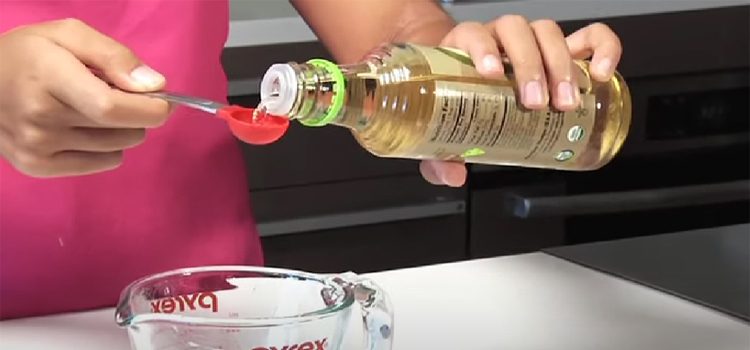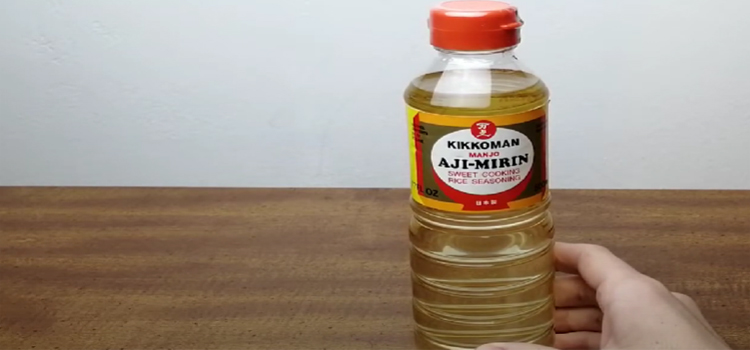Last Updated on September 14, 2024 by Shari Mason
Mirin, a sweet rice wine, gives Japanese dishes a delightful sweetness. Its **versatility** makes every recipe more exciting. Try it in marinades, dressings, glazes, and sauces for a mouth-watering experience.
If you’re an avid cook, you may have a bottle of Mirin in your pantry, but you might wonder if it could go better.
Like other types of wine, Mirin has a limited shelf life and can spoil over time. We’ll explore whether Mirin goes bad and provide tips on properly storing and using this delicious ingredient.
How Long Is Mirin Good For?


Mirin has a relatively long shelf life compared to other wine types, but it has an expiration date. Generally, unopened Mirin can last up to one year if stored in a cool, dark place away from sunlight and heat.
Once opened, Mirin should be refrigerated and consumed within six months. However, the shelf life of Mirin can vary depending on the quality of the product and the storage conditions.
It’s essential to check the expiration date and inspect the Mirin [1] for any signs of spoilage, such as a sour or vinegar-like smell, dark color, or cloudy appearance, before using it in your cooking.
Read: Is Sherry Vinegar The Same As Sherry Wine?
Signs That Mirin Has Gone Bad
- Sour or vinegar-like smell: If your Mirin has a sour or vinegar-like aroma, it is a sign that it has gone bad. This smell indicates that the alcohol in the Mirin has started to ferment and turn into vinegar.
- Dark color: Mirin should have a clear, light golden color. If the color of the Mirin has darkened or become cloudy, it may have gone bad. A dark color can indicate that the sugars in the Mirin have started to ferment, which can result in spoilage.
- Sediment: If you notice sediment at the bottom of the mirin bottle, it can signify spoilage. This sediment can be caused by the breakdown of the sugars in the Mirin and can affect the quality and flavor of the product.
- Off-taste: Mirin should have a sweet and slightly tangy taste. If it tastes sour or off, it may have gone bad. Off-taste can indicate that the alcohol has started to ferment, resulting in spoilage.
- Mold or growth: If you see any mold or other growth in your Mirin, it has gone bad and should be discarded immediately. Any kind of mold or bacterial growth can be harmful to your health if consumed.
Tips On How To Store Mirin


- Store in a cool, dark place: Mirin should be stored in a cool, dark place, away from sunlight and heat sources. Exposure to heat and light can affect the quality and flavor of the product.
- Keep the lid tightly sealed: Make sure to keep the lid of the mirin bottle tightly sealed to prevent air from entering and spoiling the product. Oxygen [2] can cause the alcohol to oxidize and the sugars to ferment, resulting in spoilage.
- Refrigerate after opening: Mirin should be refrigerated to keep it fresh. The cold temperature of the refrigerator can slow down the fermentation process and prolong the product’s shelf life.
- Use a clean utensil: When using Mirin, make sure to use a clean utensil to avoid contamination. Any bacteria or other microorganisms that contact the Mirin can cause spoilage.
- Check the expiration date: Mirin has a limited shelf life, so check the expiration date before using it. Expired Mirin can affect the quality and flavor of your dishes.
Can You Freeze Mirin To Make It Last Longer?
Mirin can technically be frozen to extend its shelf life, but it’s generally not recommended as it can affect the quality and flavor of the product.
Freezing can cause the alcohol to separate from the sugar and water, changing the texture and taste of the Mirin.
“We are all mortal until the first kiss and the second glass of wine.”
– Eduardo Galeano, Uruguayan Journalist
Additionally, the bottle may expand and potentially crack or break during the freezing and thawing. It’s best only to buy the amount of Mirin you need and store it properly in a cool, dark place away from sunlight and heat sources.
FAQs
u003cstrongu003eCan you use expired Mirin in cooking?u003c/strongu003e
No, using expired Mirin in cooking is not recommended, as it can affect the dish’s flavor and potentially make you sick.
u003cstrongu003eDoes Mirin need to be refrigerated after opening?u003c/strongu003e
Mirin should be refrigerated after opening to ensure freshness and prolong shelf life.
u003cstrongu003eWhat color should Mirin be?u003c/strongu003e
Mirin should be a clear, light golden color.
In Conclusion
Mirin is a versatile and delicious ingredient that adds sweetness and depth of flavor to many Japanese dishes.
While it has a long shelf life, Mirin can go bad over time, especially if it needs to be stored correctly. It’s essential to be aware of the signs of spoilage, such as a sour smell, dark color, sediment, or off-taste, and to check the expiration date before using it in your cooking.
Proper storage in a cool, dark place, tightly sealed and refrigerated after opening, can help prolong the shelf life of your Mirin and ensure its freshness.
References:
- https://www.bonappetit.com/story/what-is-mirin-how-to-substitute
- https://www.rsc.org/periodic-table/element/8/oxygen
- Can You Put an AC Unit in the Kitchen? - September 27, 2024
- What Cheese Does Olive Garden Use? Discover Their Signature - September 27, 2024
- How to Cancel a Pizza Hut Order? Quick & Easy Guide - September 24, 2024


